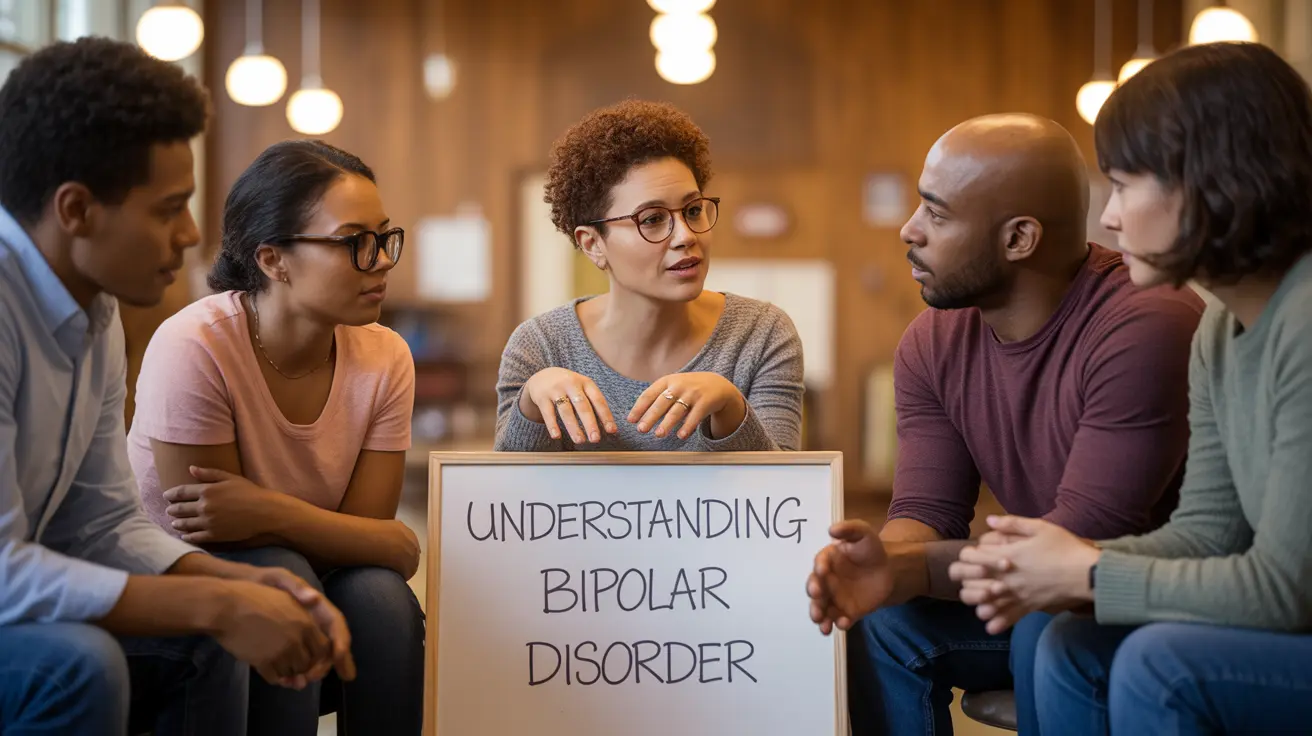Living with bipolar disorder presents unique challenges, and one of the most significant obstacles many people face is dealing with stigma. This complex social phenomenon can profoundly impact individuals' mental health, treatment decisions, and overall quality of life.
Understanding bipolar disorder stigma and developing effective strategies to combat it is crucial for both those living with the condition and their support networks. This guide explores the various dimensions of stigma and provides practical approaches for addressing its challenges.
The Nature and Impact of Bipolar Disorder Stigma
Stigma surrounding bipolar disorder often stems from misconceptions, fear, and lack of understanding about the condition. Common misconceptions include beliefs that individuals with bipolar disorder are unpredictable, dangerous, or unable to maintain relationships or employment.
These prejudices can manifest in various ways, from overt discrimination to subtle microaggressions, affecting multiple aspects of a person's life including:
- Employment opportunities
- Social relationships
- Housing access
- Healthcare quality
- Educational pursuits
Understanding Internalized Stigma
Internalized stigma occurs when individuals with bipolar disorder begin to accept and believe negative stereotypes about their condition. This can lead to:
- Decreased self-esteem
- Reluctance to seek treatment
- Social withdrawal
- Increased anxiety and depression
- Difficulty maintaining relationships
Breaking Down Treatment Barriers
Stigma can significantly impact treatment decisions and recovery journeys. Many individuals delay seeking help or discontinue treatment due to fear of judgment or discrimination. Understanding these barriers is crucial for developing effective support strategies.
Creating Supportive Healthcare Environments
Healthcare providers play a vital role in reducing stigma by:
- Providing judgment-free care
- Offering comprehensive education about bipolar disorder
- Creating welcoming clinical environments
- Maintaining open communication channels
- Supporting patient autonomy in treatment decisions
Strategies for Reducing Stigma
Combating bipolar disorder stigma requires a multi-faceted approach involving individuals, families, healthcare providers, and communities. Key strategies include:
Education and Awareness
Promoting accurate information about bipolar disorder through:
- Community education programs
- Social media awareness campaigns
- Workplace mental health training
- Family education initiatives
Building Support Networks
Creating and maintaining strong support systems through:
- Peer support groups
- Family therapy sessions
- Online communities
- Mental health advocacy organizations
Supporting Family Members and Caregivers
Families and caregivers often face their own challenges related to bipolar disorder stigma. Essential support strategies include:
- Accessing caregiver support groups
- Practicing self-care
- Seeking professional guidance
- Connecting with other families facing similar challenges
Frequently Asked Questions
What causes stigma around bipolar disorder and how does it affect people living with it? Stigma primarily stems from misconceptions, media misrepresentation, and lack of understanding about bipolar disorder. It can lead to discrimination, social isolation, and reduced access to opportunities in various life areas, including employment and healthcare.
How does stigma impact treatment decisions and mental health recovery in bipolar disorder? Stigma can discourage individuals from seeking or continuing treatment, leading to delayed care and poorer health outcomes. It may also affect medication adherence and willingness to engage in therapy or support groups.
What are common signs of internalized stigma in individuals with bipolar disorder? Common signs include self-doubt, shame about the diagnosis, reluctance to discuss mental health concerns, avoiding social situations, and believing negative stereotypes about bipolar disorder.
What strategies can help reduce bipolar disorder stigma and support mental well-being? Effective strategies include education, open dialogue about mental health, challenging misconceptions, participating in support groups, and advocating for accurate representation of bipolar disorder in media and society.
How can family members and caregivers cope with the stigma related to bipolar disorder? Family members can cope by educating themselves about the condition, joining support groups, practicing self-care, seeking professional guidance when needed, and connecting with other families who share similar experiences.




